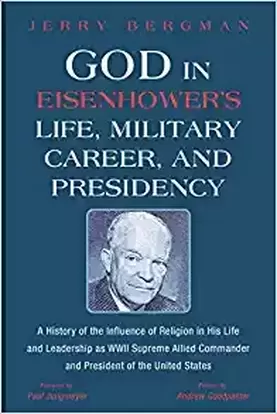Take, for example, the word “foreknow” in its various forms.
Romans 8:29 tells us, “For whom He foreknew, He also predestined to be conformed to the image of His Son …”
And 1 Peter 1:1-2 says, “Peter, an apostle of Jesus Christ, To the pilgrims of the Dispersion …, elect according to the foreknowledge of God the Father, in sanctification of the Spirit, for obedience and sprinkling of the blood of Jesus Christ …”
What did Paul and Peter mean?
Most reasonable readers would conclude that they were both referring to people predestined or elect based on God’s foreknowledge of them – because of what their omniscient and eternal Creator knew about them long ago. It’s similar to what a novelist knows about his or her characters well before the details begin to play out on paper – except that God’s knowledge of His creatures is absolutely perfect and absolutely complete, whereas fictional characters can and do surprise their creators.
Most reasonable readers would, in fact, feel comfortable applying a simple dictionary definition of “foreknow” to such passages. For example:
- “To have previous knowledge of; to know beforehand especially by paranormal means or by revelation” (Merriam Webster)
- “To be aware of (an event) before it happens” (Oxford Dictionaries)
- “To know beforehand” (YourDictionary.com)
- “To know beforehand, i.e. foresee” (Strong’s Exhaustive Concordance of the Bible, which shows us the meaning of the original Greek)
But hold on! If you think “foreknow” means much more than these simplistic definitions indicate, cheer up – you’re far from alone.
“To foreknow means to choose beforehand,” explains prolific writer Warren Wiersbe on page 117 of his 2002 book Key Words of the Christian Life, “to set your love upon someone…. God in His grace sets His love upon certain ones who are going to be saved.”
My goodness – that’s certainly a New! Improved! definition of “foreknow,” isn’t it? For readers bored by the basics, it adds a ton of bonus information!
But Wiersbe isn’t the only one who has dolled up the meaning of this simple word. For instance, a lecturer I heard recently insisted that “foreknowledge” doesn’t mean that God looked down at us through the tunnel of history. “It means that you are dead in your sin until God makes you alive,” she insisted, drawing on Ephesians 2:1 to embellish this apparently too-dull word.
Hmmmm. If we can add to the meaning of words by pulling in other remotely related scriptural concepts, might we conclude that “foreknowledge” means the Lamb of God takes away the sin of the world, based on John 1:29? Or that He draws all men, per John 12:32?
And there’s more.
“When the Bible speaks of God knowing particular individuals,” www.monergism informs us in a “foreknowledge” definition requiring over 2100 words, “it often means that He has special regard for them, that they are the objects of His affection and concern.” In other words, “He only knows those ‘who love Him, who are called according to His purpose,” per these authors, neatly piling on thoughts from Romans 8:28 to further our understanding of “foreknowledge.”
The nearly ubiquitous MacArthur Study Bible would seem to agree. “[Foreknowledge] does not refer to awareness of what is going to happen, but it clearly means a predetermined relationship in the knowledge of God,” says the note on 1 Peter 1:2 in this volume, which has shaped the thinking of so many Bible students over the years.
Of Romans 8:29, this same book says “foreknew” is “not a reference simply to God’s omniscience – that in eternity past He knew who would come to Christ. Rather, it speaks of a predetermined choice to set His love on us and establish an intimate relationship – or His election.”
And so on. Google the word “foreknow,” and you’ll find well over 100,000 entries, with gobs of them explaining why “foreknow” does not really mean “foreknow.”
Seems like these commentators have gone to a lot of effort to strip this one little ol’ word of its original meaning and gussy it up in layers of cross- and extra-biblical thinking.
I realize that defenders of this approach claim that these embellishments must be made to dovetail with other passages; but the truth is, one runs into the same issues with these other passages, too, until we're left in a fog of completely unnecessary confusion.
I guess the moral of this story is this: Be Bereans (Acts 17:11); if you want to know what God has to say on any given subject, go directly to His word. Be wary of adding to or taking away from what He has said (Revelation 22:18b-19). Ask questions about what you’re reading, such as "who's the audience?" ... "whom is the writer talking about?" ... “based on what criteria?” ... and “for what purpose?”
In short, “as newborn babes, desire the pure milk of the word, that you may grow thereby” (1 Peter 2:2). And beware of any additives that threaten to taint it.




 RSS Feed
RSS Feed